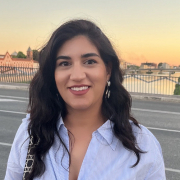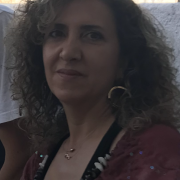
Δρ. Χατζηδιάκου Δέσποινα, Ε.Ε.Π. Τ.Ε.Π.Α.Ε.Σ., Παν/μίου Αιγαίου hatzidiakos@aegean.gr

Ελένη Καζούλλη, Κοινωνιολόγος, υποψήφια διδακτόρισσα Π.Τ.Δ.Ε. Παν/μίου Αιγαίου, kazoullis@rhodes.aegean.gr

Τσαμπίκα Μακρογιάννη, Ε.ΔΙ.Π. – Τ.Ε.Π.Α.Ε.Σ. Πανεπιστημίου Αιγαίου, makrogianni@aegean.gr
Διερεύνηση της πολυγλωσσίας και της διαπολιτισμικότητας σε ένα πρόγραμμα θερινών μαθημάτων ελληνικής γλώσσας στο νησί της Ρόδου: Μια μελέτη βασισμένη στους μαθησιακούς περιπάτους του Célestin Freinet
Περίληψη
Η παρούσα έρευνα διερευνά τη δυναμική της πολυγλωσσίας και της διαπολιτισμικότητας στο πλαίσιο ενός προγράμματος θερινών μαθημάτων ελληνικής γλώσσας στο νησί της Ρόδου. Χρησιμοποιώντας μια μεθοδολογική προσέγγιση εμπνευσμένη από τις παιδαγωγικές αρχές του Célestin Freinet, η μελέτη ενσωματώνει μαθησιακούς περιπάτους (learning walks) και φωτοπεριπάτους (photowalks), ως εργαλεία συμμετοχικής κοινωνικής έρευνας, για να εμπλέξει τους φοιτητές και τις φοιτήτριες και να τους ενθαρρύνει να παρουσιάσουν τα ευρήματά της έρευνάς τους με πολλαπλούς τρόπους χρησιμοποιώντας τη γλώσσα-στόχο. Η μελέτη υιοθετεί έναν ποιοτικό ερευνητικό σχεδιασμό, ο οποίος χρησιμοποιεί συμμετοχική παρατήρηση, συνεντεύξεις και τεχνικές ανάδειξης φωτογραφιών για τη συλλογή πολύπλευρων δεδομένων. Μέσα από το πρίσμα της φιλοσοφίας του Freinet, η οποία δίνει έμφαση στη βιωματική μάθηση, τη συνεργασία και τη μαθητοκεντρική έρευνα, οι συμμετέχοντες πραγματοποιούν περιπάτους στα πολυγλωσσικά και πολυπολιτισμικά τοπία της μεσαιωνικής πόλης της Ρόδου. Κατά τη διάρκεια αυτών των περιπάτων, οι συμμετέχοντες καταγράφουν και τεκμηριώνουν τις παρατηρήσεις, τις αλληλεπιδράσεις και τους προβληματισμούς τους μέσω της φωτογραφίας, προωθώντας την κατανόηση της πολυπλοκότητας που ενυπάρχει στις πολυγλωσσικές και διαπολιτισμικές συναντήσεις. Μέσω της ανάλυσης των αφηγήσεων των συμμετεχόντων/συμμετεχουσών, των φωτογραφιών και των σημειώσεων πεδίου, αναδύονται θέματα που αφορούν τη γλωσσική διαπραγμάτευση, την κατασκευή ταυτότητας, την πολιτισμική προσαρμογή και τις εμπειρίες εκμάθησης γλωσσών. Μετά τη διεξαγωγή της έρευνας, οι συμμετέχοντες/συμμετέχουσες εμπλέκονται σε μια δημιουργική προσπάθεια, στην οποία χρησιμοποιούν τις γνώσεις και τις γλωσσικές τους δεξιότητες για να δημιουργήσουν πολυτροπικά κείμενα στην ελληνική γλώσσα.
Βιογραφικά Σημειώματα
Μακρογιάννη Τσαμπίκα: Εργαστηριακό Ειδικό Προσωπικό στο Τμήμα Επιστημών της Προσχολικής Αγωγής και του Επιστημονικού Σχεδιασμού του Πανεπιστημίου Αιγαίου. Υπήρξε διευθύντρια σε Δημοτικά Σχολεία της Ρόδου από το 2011. Διδάκτορας του Πανεπιστημίου Αιγαίου στον τομέα της Γλώσσας, απόφοιτος της Παιδαγωγικής Ακαδημίας Ρόδου και του ΠΤΔΕ (εξομοίωση), απόφοιτος του ΤΕΠΑΕΣ Παν/μίου Αιγαίου, Δίπλωμα Μετεκπαίδευσης του Διδασκαλείου «Αλέξανδρος Δελμούζος» (Γενική Αγωγή) και Μεταπτυχιακός Τίτλο Σπουδών «Επιστήμες της Αγωγής και Νέες Τεχνολογίες», ΠΤΔΕ, Πανεπιστημίου Αιγαίου. Επίσης συμμετοχή σε ερευνητικά προγράμματα όπως « Ένταξη και Εκπαίδευση Παιδιών Ρομά», από το 2011 έως σήμερα, και «Εκπαίδευση Αλλοδαπών και Παλιννοστούντων». Συμμετοχή σε Ευρωπαϊκά προγράμματα ως δασκάλα. Επίσης συμμετοχή σε διεθνή και πανελλήνια συνέδρια και επιστημονικές δημοσιεύσεις σε πρακτικά συνεδρίων (με κριτές) και σε επιστημονικά περιοδικά.
Η Ελένη Καζούλλη είναι απόφοιτος του τμήματος Κοινωνιολογίας του Πανεπιστημίου Κρήτης με μεταπτυχιακές σπουδές στο Πρόγραμμα Μεταπτυχιακών Σπουδών “Επιστήμες της Αγωγής – Εκπαίδευση με χρήση Νέων Τεχνολογιών“ του Παιδαγωγικού Τμήματος Δημοτικής Εκπαίδευσης στο Πανεπιστήμιο Αιγαίο. Εκπονεί την διδακτορική της διατριβή στο ίδιο τμήμα και τα ερευνητικά της ενδιαφέροντα αφορούν την ετερότητα στο κοινωνικό περιβάλλον του σχολείου. Εργάζεται στην οργανωτική υποστήριξη του Κέντρο Επιμόρφωσης και Δια Βίου Μάθησης (Κ.Ε.ΔΙ.ΒΙ.Μ.) του Πανεπιστημίου Αιγαίου.
Η Δέσποινα Χατζηδιάκος απέκτησε δύο προπτυχιακούς και έναν μεταπτυχιακό τίτλο σπουδών στη Φυσική και Αγωγή στην Υγεία και στην Εκπαίδευση από το Πανεπιστήμιο του Τορόντο (Καναδάς). Ολοκλήρωσε έναν ακόμη μεταπτυχιακό τίτλο στο Πανεπιστήμιο του Λονδίνου (Αγγλία) και ένα Διδακτορικό από το Πανεπιστήμιο Αιγαίου στον τομέα του Φύλου και της Ηγεσίας και Διοίκησης. Εργάζεται ως Ειδικό Εκπαιδευτικό Προσωπικό (Ε.Ε.Π.) στο Τμήμα Επιστημών της Προσχολικής Αγωγής και του Εκπαιδευτικού Σχεδιασμού (Τ.Ε.Π.Α.Ε.Σ.) στο Πανεπιστήμιο Αιγαίου. Τα μαθήματα που διδάσκει περιλαμβάνουν Δημιουργική Κίνηση και Κοινωνική Ανάπτυξη, Έρευνα στη Δημιουργική Κίνηση και Κοινωνική Ανάπτυξη, Γ’ Φάση Πρακτικών Ασκησέων: – Εκπαιδευτικός Σχεδιασμός και Επαγγελματική Επάρκεια.


